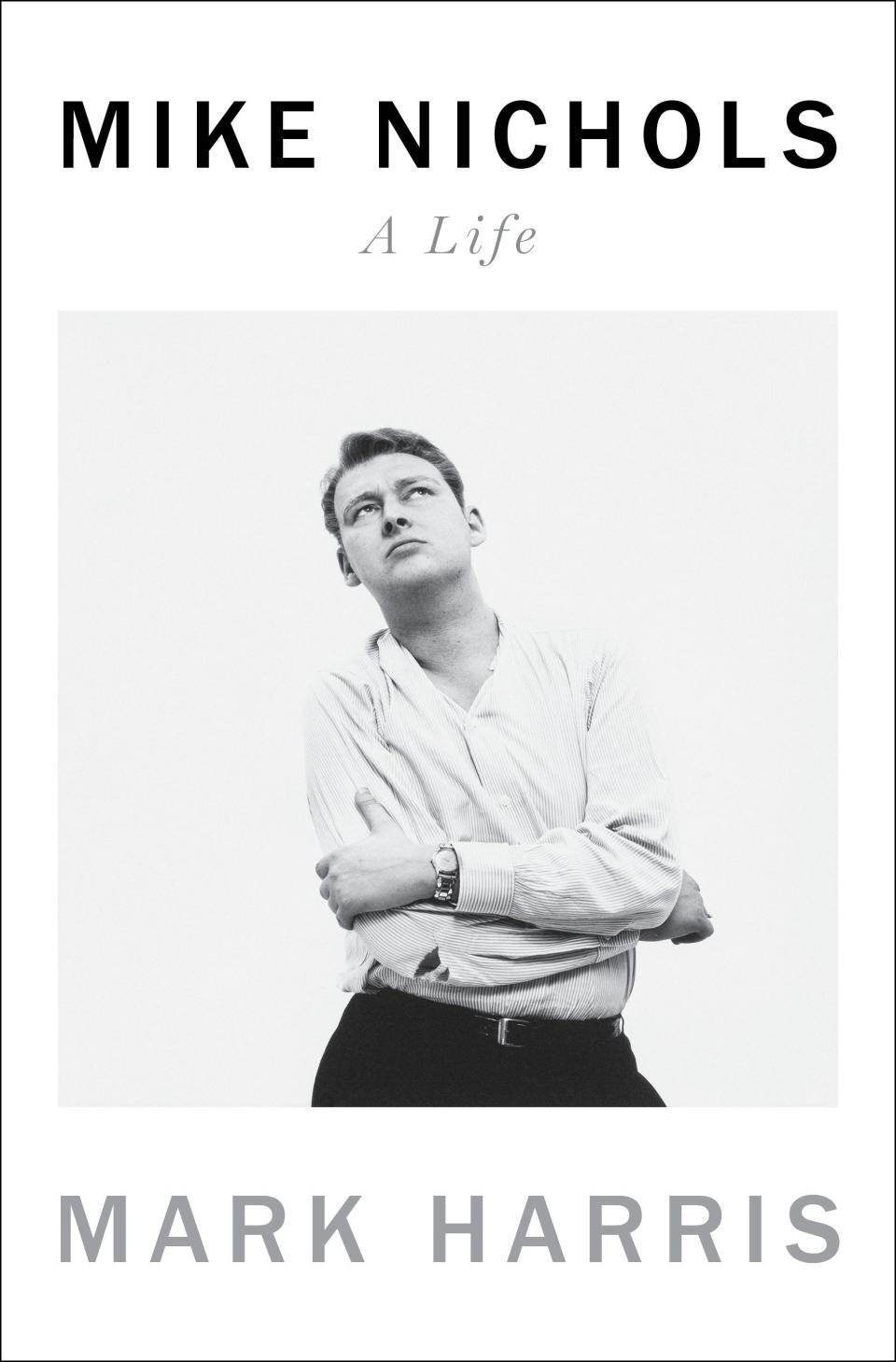Review: Boffo new bio of Mike Nichols' brilliant career from film scholar Mark Harris
- Oops!Something went wrong.Please try again later.
Who wouldn’t relate to a child born in 1931 Berlin, a child who suffered lifelong hair loss after an allergic reaction to the whooping cough vaccine, who then crossed the Atlantic with his family to escape the Nazis – and within a couple of decades had reinvented himself as Mike Nichols? That’s the headlong narrative that begins Mark Harris’ new biography, “Mike Nichols: A Life” (Penguin Press, 688 pp., ★★★½ out of four), which charts the unlikely yet enduring relatability of one of America’s most charismatic artists of theater and film.
Nichols, who died in 2014, began as Michael Igor Peschkowsky, but by the time he donned the wig that capped his aquiline features and tall frame, the bald, bullied Jewish New Yorker was a gifted, if directionless, student at the University of Chicago. His quiet charm and often cruel wit made him a natural for the Second City’s satiric theater scene, and soon he teamed with his artistic soulmate, another future showbiz legend, Elaine May.
'Shady Baby': Gabrielle Union and Dwyane Wade pen children's book inspired by 2-year-old daughter

The comedic duo soared in the late 1950s, as the early days of TV turned Nichols and May into household names while their brittle byplay awakened America to an edgier, modern sensibility. In timeless routines and improvs, they traced guilt-inducing mothers phoning their sons and self-conscious teenagers fumbling in cars and offered darker, Freudian takes on the performative nature of relationships.
Indeed, Nichols was already a star – high-lifing with the glitterati, from Leonard Bernstein to Jacqueline Kennedy Onassis and photographer Richard Avedon – when he found his ultimate niche as a director. After the split from May, Nichols and a nascent Neil Simon launched a new, hit breed of situation comedy on Broadway with "Barefoot in the Park" (starring an unknown Robert Redford) and then "The Odd Couple." Nichols’ experience with the Method acting approach of Lee Strasberg and the realism of Elia Kazan sparked a new vision for the stage, while he proved a calm, enabling whisperer of neurotic talent.
“He liked Strasberg’s notion that the director creates the events of the play,” Harris writes, “but he was even more drawn to Kazan’s conviction that psychology onstage is best illuminated when it is made manifest in physical behavior.” Nichols brought a new naturalism to staged comedy, and from there it was a natural leap to film work, starting with a screen version of Edward Albee’s drama of marital war, “Who’s Afraid of Virginia Woolf?” – starring, and elevating, the 1960s’ most scandalous celebrities, Elizabeth Taylor and Richard Burton.
More: David Duchovny talks new novel 'Truly Like Lightning,’ reveals its connection to ‘The X-Files’

Nichols followed that triumph with “The Graduate,” casting a small, dark and ethnic newcomer, Dustin Hoffman, against type as the leading man and yielding a satire of American life that became the third-highest-grossing film in history at that time, behind “Gone With the Wind” and “To Kill a Mockingbird.”
“The Graduate” defined baby boomer angst, but Nichols soon broke more new ground, exploring white male entitlement and misogyny in “Carnal Knowledge.” He also endured such inevitable flops as his narratively vague, big-budget version of “Catch-22” and a misconceived “The Day of the Dolphin,” all on the road to further wealth and honor.
Harris, a proven scholar of Hollywood, writes brilliantly and gathers momentum with deeply researched, fascinating forensic passages about the challenges and conflicts of Nichols’ great projects. The result, though, is more a career study and, often, a technical gloss than a truly palpable “life,” despite the dutiful chronicling of Nichols’ low- and high-profile marriages, his children, his buying and selling of Arabian horses, his self-doubt and depression. Harris’s 600-page opus is often too digressive, if entertainingly so, in its lengthy discussions of, say, actor George C. Scott’s alcoholic binges during more than one Nichols production.
But as B’way and Hollywood bios go, this is one boffo book.
This article originally appeared on USA TODAY: Review: Mark Harris writes boffo bio of Mike Nichols’ brilliant career

